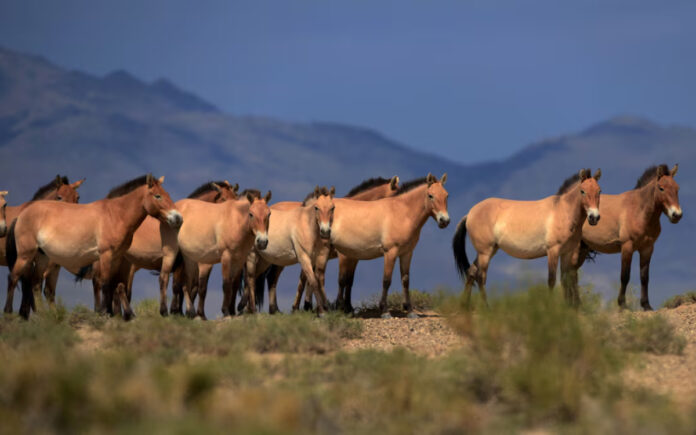New York: The integration of horses into human civilization marked a transformative epoch, revolutionizing travel and warfare while shaping the course of history. Despite its significance, the timeline of equine domestication has been shrouded in uncertainty. However, a comprehensive analysis of genome data from ancient and modern horses is dispelling ambiguity and unveiling the intricate narrative of equine evolution.
Lead author of the study, evolutionary biologist Pablo Librado from the Institute of Evolutionary Biology (IBE) in Barcelona, elucidated the profound impact of horse domestication on human civilization: “Animal domestication, in general, changed human history, but no other animal was a king-maker as the horse was.” The findings, published in the journal Nature, underscore the pivotal role of horses in shaping societies and cultures across Eurasia.
Contrary to previous assumptions, the genomic evidence unveiled a dual narrative of horse domestication. The study revealed that domestication occurred twice, with the first instance originating in Central Asia approximately 5,500 years ago within the Botai culture. However, this initial endeavor, focused on meat and milk production, failed to facilitate widespread domestication.
A subsequent wave of domestication emerged in the western Russian steppes around 4,700 years ago, heralding a transformative era of horse-based mobility. This pivotal event, occurring roughly 4,200 years ago, precipitated the rapid dissemination of horses across Eurasia, reshaping communication networks, trade routes, and military strategies.
Also Read | World Athletics’ Prize Money Policy Sparks Controversy, Deemed Discriminatory by EOC
Molecular archaeologist and study co-author Ludovic Orlando highlighted the evolutionary shifts in breeding practices that accompanied this period of expansion. The adoption of close-kin mating facilitated the selection of desired traits, accelerating horse production and fostering a symbiotic relationship between humans and equines.
The advent of horse-based mobility catalyzed a new era of globalization, facilitating cultural exchanges and catalyzing human migration patterns. Orlando remarked, “This started a new era in human history, when the world became smaller, more global.” Chariots and cavalry emerged as formidable instruments of warfare, influencing the rise and fall of empires.
Also Read | Tesla Enhances In-Car Navigation Experience in China with Lane-Level Guidance
The study challenges previous hypotheses regarding the role of horses in early human migrations, debunking the notion that steppe migrations 5,000 years ago occurred on horseback. Instead, it underscores the intricate interplay between human movements and equine domestication, reshaping our understanding of ancient civilizations.
As humanity galloped through history on the backs of horses, these majestic creatures left an indelible imprint on the tapestry of human civilization, embodying the spirit of innovation and collaboration that continues to define our journey through time.



